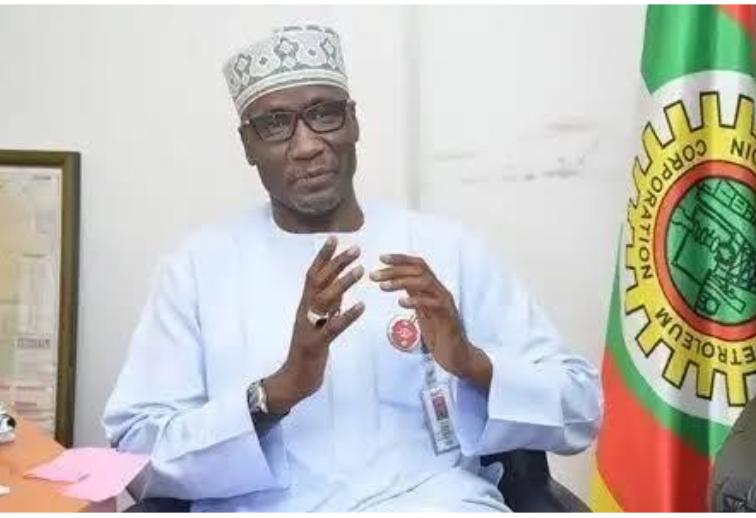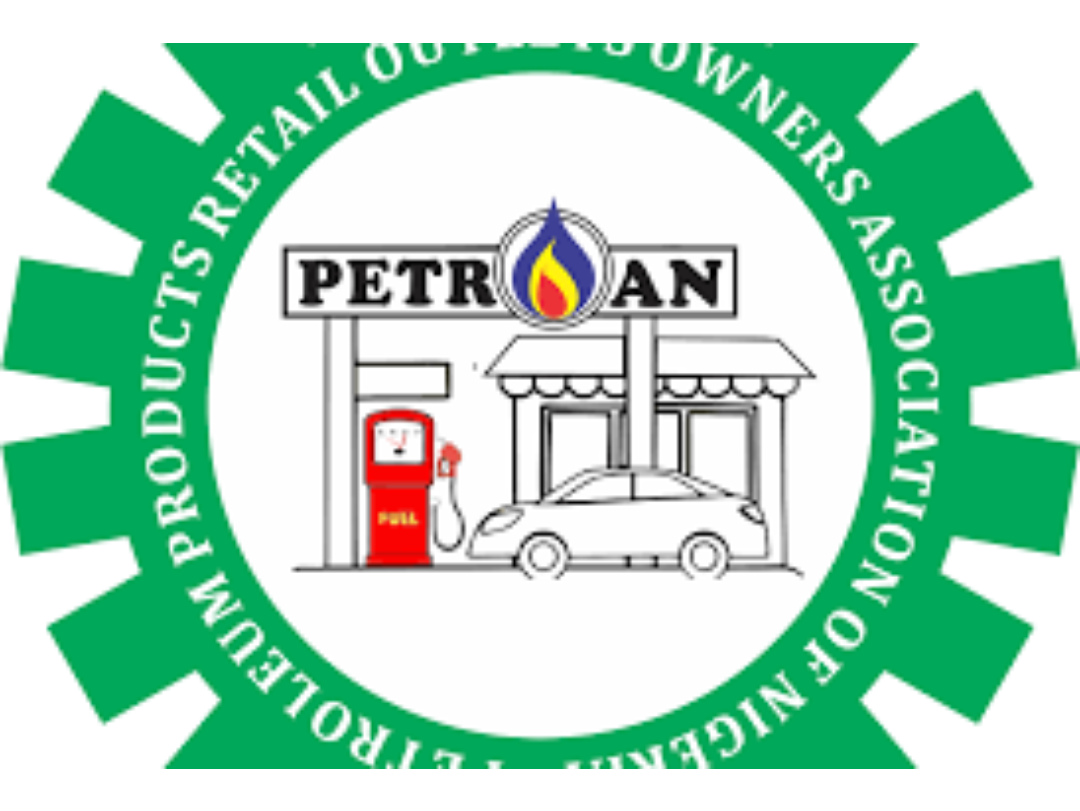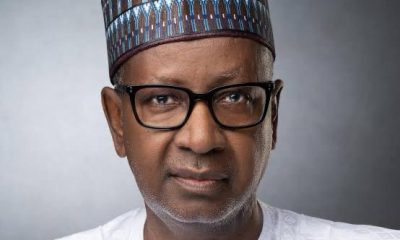Oil & Gas
NNPC Suspends Payment of Oil Subsidy

The Group Managing Director of the Nigerian National Petroleum Corporation (NNPC), Malam Mele Kyari, says Nigeria would no longer pay subsidy on petrol with the ongoing global oil price decline.
Kyari disclosed this in a statement signed by NNPC spokesman, Dr Kennie Obateru, in Abuja on Monday.
The NNPC boss said this while he featured as a guest in a morning television programme.
“There is no subsidy and it is zero forever, going forward there will be no resort to either subsidy or under recovery of any nature.
“NNPC will play in the marketplace, it will just be another marketer in the space. But we will be there for the country to sustain security of supply at market price,” he said.
Kyari stated that NNPC was a transparent organisation, saying the National Oil Company was probably the only company in the world that published its monthly financial and operations reports.
He said the corporation was proud of the initiative, and assured Nigerians of NNPC’s commitment and observance of transparency and accountability in all its transactions.
He disclosed that as at April 5, Nigeria produced 2.3 million barrels of crude oil, including condensates.
He maintained that the plan was for the country to ramp up production to three million barrels per day in the nearest future.
Kyari said Nigeria was endowed with premium crude oil grades supplied to Europe, Asia and India.
He added that not withstanding the COVID-19 pandemic which had affected demand and supply fundamentals, all Nigeria’s export terminals were still in operations.
“The key issue in crude oil business is market fundamentals of demand/supply. I believe COVID-19 will subside and countries will come back to life.
“I don’t see oil price going below the 20 dollars we saw last week. I’m certain, all things being equal, oil price will bounce back,” he added.
The NNPC’s helmsman assured Nigerians of ample supply and distribution of petroleum products.
He explained that in spite of the Coronavirus pandemic, the corporation had in stock about 2.6 billion litres of petroleum products that could service the country’s energy needs for the next two months.
He stated that the NNPC was collaborating with all relevant stakeholders to ensure that the supply and distribution value chain was not disrupted to guarantee energy security for the country.
On Industry contribution to contain the spread of Coronavirus, he said that they would construct at least two hospitals and a world class diagnostic centre in each geopolitical zone.
He said that the gesture was part of the sectors contribution to build a robust healthcare system for Nigeria.
He noted that the centres were additions to the 250 temporary bed facilities that it had offered to support government’s efforts in the fight against Coronavirus pandemic.
He said the hospitals and the world class diagnostics centres would be an addition to the regular Corporate Social Responsibility (CSR) initiatives of the Upstream and Downstream companies, as well as service providers operating in the Oil and Gas Industry.
Kyari said that all commitments from the Industry would be collected in kind and handed over to the Presidential Taskforce for the Control of Coronavirus. (NAN)
Oil & Gas
PETROAN says Dangote Fuel Plan Threatens Downstream

Petroleum Products Retail Outlets Owners Association of Nigeria (PETROAN) on Monday raised alarm over the plan by Dangote Refinery to start direct nationwide distribution of petrol and diesel.
In a statement issued on Monday, PETROAN spokesperson, Mr Joseph Obele, said the move by Dangote could have consequences on the country’s downstream sector,
According to him, such consequences include widespread job losses and the shutdown of small businesses.
On June 15, Dangote Refinery disclosed its plan to distribute petrol and diesel directly to consumers across Nigeria.
Reacting to this development, PETROAN National President, Dr Billy Gillis-Harry, warned that such strategy could create a monopolistic market structure, stifling competition and threatening thousands of livelihoods in the sector.
“With a production capacity of 650,000 barrels per day, Dangote Refinery should be positioning itself to compete with global refiners rather than engaging in direct distribution within Nigeria’s downstream sector,” Gillis-Harry said.
He stated that this move undermines the survival of independent marketers, truck owners, filling station operators, and modular refinery operators who rely on the existing supply chain structure.
Gillis-Harry noted that Dangote’s dominance could lead to higher fuel prices due to reduced competition and business closures across the fuel retail landscape.
The president said that the situation could also lead to massive job losses among truck drivers, petroleum product suppliers, and station operators
He cautioned that the introduction of 4,000 new Compressed Natural Gas (CNG)-powered tankers by Dangote, which might lower transportation costs, could pose a threat to the jobs of traditional tanker drivers and owners.
“Filling station operators, truck owners, telecom diesel suppliers, and modular refineries are all at risk.
“Dangote’s approach could trigger a pricing penetration strategy aimed at capturing market share and forcing competitors out of the market,” Gillis-Harry added
The PETROAN boss said that Dangote’s market influence might allow for price setting that could disadvantage consumers, noting similar patterns in other industries where the conglomerate operates.
Gillis-Harry, therefore, urged the Executive Director of the Nigerian Midstream and Downstream Petroleum Regulatory Authority (NMDPRA) and the Minister of State for Petroleum Resources to urgently introduce price control mechanisms and enforce fair competition policies.
“Competition must be protected and encouraged to safeguard consumers, preserve jobs, and maintain a healthy petroleum distribution ecosystem,” he stressed. (NAN)
Oil & Gas
NNPC Ltd. Records N5.8bn revenue, N748bn PAT in April

The Nigerian National Petroleum Company Limited (NNPC Ltd.) has announced a revenue of N5.89 billion and a Profit After Tax (PAT) of N748 billion for the month of April.
The NNPC Ltd. disclosed this in its Monthly Report Summary for April, released on Thursday.
The report highlights key statistics, including crude oil and condensate production, natural gas output, revenue, profit after tax and strategic initiatives during the period.
The report said that NNPC Ltd made statutory payments of N4.
22 billion between January and March.According to the report, crude oil and gas figures are provisional and reflect only NNPC Limited’s data.
It said that It excluded volumes of independent operators reported by the Nigerian Upstream Petroleum Regulatory Commission (NUPRC).
“Crude oil and condensate production averaged 1.606 million barrels per day (bpd) in April, while natural gas production was 7.354 million standard cubic feet daily.
“Petrol availability at the NNPC Ltd. retail stations recorded 54 per cent during the month under review, while upstream pipeline reliability was 97 per cent,” it said.
On its strategic efforts, it said that the company was collaborating with Venture Partners to accelerate Sustainable Production Enhancement.
It said that it completed the implementation of relevant presidential directives and Executive Orders for its upstream operations.
The report listed some Technical Interventions on Ajaokuta-Kaduna-Kano (AKK) pipeline and the Obiafu-Obrikom-Oben (OB3) gas pipelin to resolve challenges of River Niger crossings.
It said that the OB3 gas pipeline project was 95 per cent completed in the month, while the AKK pipeline was 70 per cent completed.
The report said that Turnaround Maintenance (TAM) was completed in several Oil Mining Leases (OML), including OML 18, OML 58, OML 118, and OML 133.
On Refineries Status, it said that the Port Harcourt Refinery Company (PHRC), as well as the Warri and Kaduna refineries were currently under review.
According to the report, all financial figures are provisional and unaudited, and all operational and financial data are for April unless indicated otherwise. (NAN)
Oil & Gas
NNPC Ltd. Disclaims Fake Financial Scheme

The Nigerian National Petroleum Company Limited (NNPC Ltd.) has disowned a fake AI-generated video circulating on social media featuring a cloned voice of the Group CEO, Mr Bayo Ojulari, promoting a fictitious poverty alleviation scheme.
The Chief Corporate Communications Officer, NNPC Ltd.
, Olufemi Soneye in a statement on Thursday clarified that the company had no such investment initiative.Soneye urged the public to disregard the video, originally shared by an account named Mensageiro de Cristo on Facebook.
“NNPC Ltd. has warned the perpetrators to cease their fraudulent actions or face legal consequences,” he said. (NAN)


























